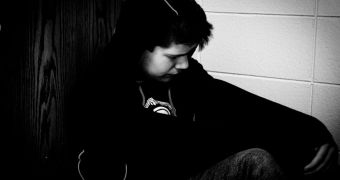According to the conclusions of a new study, it would appear that people who suffer from common mental health disorders, such as depression, tend to receive less and less support from their friends and family, as the conditions become more and more widespread.
The same research also demonstrated that those suffering from rare, unusual or severe mental health problems are the most likely to get support from both close friends or family, and society in general.
What these discoveries mean is that it’s becoming increasingly difficult for psychiatric patients suffering from more common disorders to get the treatment and support they need in order to get better.
Details of the new investigation were published in a recent issue of the medical Journal of Health and Social Behavior. The work was led by Dr. Brea L. Perry, who holds an appointment as a sociologist at the University of Kentucky in Lexington.
For this research, she conducted interviews with 165 people, all of whom were suffering from conditions such as major depression, bipolar disorder and schizophrenia, among others. This was the first time any of the test subjects were undergoing mental health treatment.
What the expert learned was that conditions such as depression and mild mood disorders were very unlikely to elicit support or strong reactions from study participants' families or friends.
The main implication here is that the network supposedly responsible for providing support has very little patience and understanding during those moments when patients' behaviors deviate from what is commonly considered to be normal, PsychCentral reports.
“Perhaps because so many people are diagnosed and subsequently treated successfully, signs of depression do not alarm friends and family members to the same degree as disorders known to severely affect functioning,” Perry explains.
“Day-to-day emotional and instrumental support is likely to play a critical role in recovery from mental illness,” she goes on to say, adding that conditions such as schizophrenia or the manic phase of BPD are more likely to elicit support from close friends and family.
At the same time, acquaintances and strangers to those who suffer from more severe mental disorders become more likely to discriminate and reject them as a result of their diagnostics.

 14 DAY TRIAL //
14 DAY TRIAL //